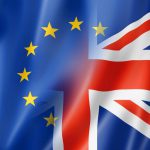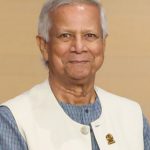Report to the General Assembly 2023 – Vlore ALBANIA – 25-29 October 2023
from AEJ Media Freedom Representative Kyriakos Pieridis
KEY CHALLENGES: OVERVIEW
Media Freedom is the top priority of the Association of European Journalists and one of the fundamental
reasons for which it was founded back in the ‘60s
(Statute article 3 – Aims: “The Association of European Journalists, which has no profit motive whatever, brings together all journalists who are convinced of the need for European integration on a democratic basis and are determined to defend the freedom of the press and of information in the successful pursuit of that undertaking.”)
Over decades the barriers to Media Freedom have grown more acute and complex, both among Member States of the EU and more widely among all 46 countries of the Council of Europe, and beyond.
The AEJ Media Freedom Representative identifies these key challenges facing our members in all sections, and which call for easy coordination and use of the association’s resources to maximise our impact on policymakers and reclaim a safe and free working environment:
- Effective safeguards against all forms of governmental, political, and economic interference in editorial decisions
- Transparency of private media ownership and independent oversight to stop over-concentration and ‘media capture’
- Protections of editorial independence and source protection especially when disclosing corruption and conflicts of interest
- Safeguards for the independence of Public Service Media output and governance
- Access to information and the fight against exclusion of critical media voices
- Transparency in the allocation of state advertising and other resources, including at elections
- Counter fake news, promoting ethical journalism and fact-checking
- Solidarity among free and independent media
The AEJ amplifies its voice significantly by cooperating as one of the 15 press freedom Partner organizations of
the Council of Europe’ Safety of Journalists Platform, which was set up with member states’ formal approval in 2015. The partners together represent a formidable mechanism to push for remedial actions against threats to media freedom — including through reforms of over- restrictive national laws and arbitrary actions by law-enforcement. In early October the CoE announced a Europe-wide campaign Journalism Matters (see William’s accompanying report to the GA).
AEJ also contributed to reports and joint public statements on the state of media freedom and journalists’ safety.
AEJ should become more proactive as an actor in NGO engagements with the European Commission and Parliament over matters regarding Media Freedom, Journalists’ Safety, Rule of Law and Human Rights.
The AEJ benefits greatly from solidarity with like-minded networks, including through joint representations and statements, press freedom missions and participation in work to strengthen mechanisms of protection and strengthen safeguards in law and policy.
Over the past 12 months, Kyriakos Pieridis has acted in close cooperation with William Horsley, as the AEJ’s contact point with the Council of Europe. The role of the AEJ Representative in Brussels Gian Paolo Accardo is also important for our relations with the EU institutions and for gathering timely information.
As MF Representative I had intended to join William for the public Presentation of the Safety of Journalists’ Platform 2023 Annual Report on 7 March at the Brussels Press Club; unfortunately that was not practically possible. Instead AEJ Brussels Rep Gian-Paolo Accardo was present with William for the event and he also took part in meetings there arranged by the Council of Europe with EU and Ukrainian officials.
EMFA – ITS IMPORTANCE FOR THE AEJ
The European Media Freedom Act (EMFA), a prospective set of legislation and measures to safeguard media freedom, pluralism, and protection of journalists, is highly important for the AEJ as the Union’s main instrument for reversing setbacks to press freedom, independence and sustainability over recent years. The EC held multiple consultations with the stakeholders, including journalists trade union federations, organizations, and associations.
Provided the EMFA is not watered down by pressures from member states it can provide a valuable framework to strengthen media freedom. The EU is also publicly committed to providing active support to independent media and journalists’ safety in non-member states, through funding support, diplomatic efforts, and trial monitoring. In the coming period the AEJ is called on to step up our journalistic output, awareness-raising, advocacy, and coordination with partners to identify the challenges and combat all kinds of threats and attacks against journalists and their work.
Raising awareness on EMFA has spurred lively discussions among AEJ sections and members – see for example the activities of the Cyprus Section described in its National Report.
In this framework, Pieridis invited the AEJ Executive Board and national sections to participate in a public online discussion in December the 13th, 2022. The online discussion titled “Media Freedom in Europe” provided a unique opportunity to share experiences with EU based organizations to protect journalists.
William Horsley, AEJ Media Freedom Representative 2010 – 2022 presented the Safety of Journalists Platform of the Council of Europe. https://fom.coe.int/en/accueil
Gürkan Özturan, on behalf of the European Centre for Press and Media Freedom presented the Media Freedom Rapid Response platform. https://www.mfrr.eu/
During the discussion coordinated by Kyriakos Pieridis, the discussants put emphasis on key challenges for journalists in recent years, especially in countries of Europe with authoritarian regimes and restrictive authorities, defying media freedom and oppressing journalists and media. Journalists with long experience took the floor to explain how the journalist can response using the existing safety platforms and engaging with European journalists’ initiatives. Interventions were made by AEJ – International – President Saia Tsaousidou and Otmar Lahodynsky, Honorary President of AEJ, as well as from journalists of AEJ national sections.
On the issues related to political interventions and threats and ways to preserve editorial independence and pluralism the panellists expressed their position to fully engaged with the ongoing initiative of the EU for legislative measures under the European Media Freedom Act. They also support strengthening the cooperation between journalists’ organizations and utiling the best practices across Europe to protect media freedom. Watch the video https://fb.watch/hpc96_Yabi/
In parallel, the AEJ MF Representative Pieridis held meetings in Brussels in November 2022 with the EFJ – European Federation of Journalists, based in Brussels and the ECPMF – European Center of Press and Media Freedom based in Leipzig. The aim of these meetings was to exchange views and align AEJ position on EMFA to have the best possible outcome in the framework of the EU decision making.
The EMFA initiative and discussions were closely followed by some of AEJ National Sections and many of the individual members of AEJ.
AEJ member in Poland Chris (Krzyshtof) Bobinski has closely watched recent developments. leading to the adoption of EMFA by the European Parliament (early October 2023) by 448 votes to 102 with 75 abstentions. He notes that the Council, Commission and Parliament (the ‘trialogue’) are due to negotiate a final version early next year and the outcome will be voted on again by the EP soon after.
The EC and the EP aim to strengthen the efforts to oblige Member States to ensure media plurality and protect media independence from governmental, political, economic, or private interference. Much of the discussions are still focusing on how to ban all forms of interference in the editorial decisions of media outlets and prevent external pressure being exerted on journalists, such as forcing them to disclose their sources, accessing encrypted content on their devices, or targeting them with spyware. The use of spyware against journalists is to be “partially” banned. The EP argued that it may only be justified as a ‘last resort’ measure, on a case-by-case basis, and if ordered by an independent judicial authority to investigate a serious crime, such as terrorism or human trafficking. A total ban is said to be unrealistic and might jeopardize the whole package. European publishers also argued against the EMFA on grounds of ‘editorial freedom’. They oppose any kind of EU level measures, citing national competences. Once the EMFA is passed a debate should follow on how the Commission and Member States should legislate to enact it and monitor it in practice.
RULE OF LAW AND MEDIA PLURALISM
Another relevant initiative to the EMFA is the establishment of a new EU Mechanism to assess and monitor the implementation of Rule of Law in Member States. The European Rule of Law Mechanism provides a process for an annual dialogue between the Commission, the Council and the European Parliament together with Member States as well as national parliaments, civil society and other stakeholders on the rule of law. The Rule of Law annual report is the foundation of this new process. It covers four pillars: the justice system, the anti-corruption framework, media pluralism, and other institutional issues related to checks and balances. Vice President Vera Jourova and Commissioner for Justice Didier Reynders hold the portfolio of these two interconnected topics.
AEJ can be part of the targeted consultation of stakeholders with the European Commission and the Parliament.
In this framework, AEJ MFR Pieridis visited Brussels in November 2022 and met members of Commission Vice President Vera Jourova ‘s cabinet in the framework of an EU funded project for the AEJ Cyprus section. He also met members of the European Parliament’s LIBE and CULTU Committees responsible for the EMFA. Pieridis was also invited and participated in a special meeting in Nicosia (May 2023) with the Commissioner Didier Reynders.
–
During the meetings, Pieridis focused on direct pressures against journalists from governmental, political, and economic circles to deter them to investigate and disclose serious cases of corruption.
The Commission issued 4 editions of the annual report on the Rule of Law (2020 – 2023). According to the reports, journalists are facing serious challenges in several Member States due to the lack of media pluralism, investigative journalism, transparency of private media ownership and the government control over public service media.
RECOMMENDATIONS
Based on the experience of the last 12 months, AEJ Media Freedom Representative proposes the following to the Executive Board and the General Assembly in a joint effort to re-energize AEJ focusing on common concerns about Media Freedom:
- Further Engagement with the EU Institutions
- Strengthening our Network with other Organizations
- Establishing a voluntary Media Freedom network including all Sections
- AEJ and tackling fake news
- AEJ engagement with the Council of Europe
1. ENGAGEMENT WITH EU
The AEJ should aim to upgrade its contacts and deliberations with the EU institutions. The AEJ Board, the MF Representative and Brussels Representative shall coordinate their efforts to that end to make the AEJ an effective and respected interlocutor of EU makers of policies and laws.
2. NETWORKING
The AEJ has limited capacity and resources but remains a European “brand name”. We aim to strengthen our coordination with partner organizations including the ECPMF and other “Platform” partners such as the EFJ, IPI and RSF.
AEJ Board and national sections represented at the General Assembly may wish to put forward details and contacts in other organizations with shared interests and concerns.
3. AEJ MEDIA FREEDOM INTERNAL MECHANISM
The AEJ National Sections contribution in the field of Media Freedom is crucial. Only through the feedback from National Sections can the association share a common understanding of significant events and developments in each country where we have individual members. The input from the National Sections is also vital for verifying and helping to formulate Media Alerts on the Platform.
I propose the establishment of an internal voluntary AEJ Mechanism on Media Freedom, in which the President of each National Section (or an authorized member) will participate with the following tasks:
– Provide feedback on the current state of play of Media Freedom in their respective countries.
– Report and/or verifying cases of Media Freedom violations that require Media Alerts
– Participate in regular bimonthly online meetings with the AEJ Media Freedom Representative to exchange views on current affairs in relation with Media Freedom
– Organize mutual agreed online public events to raise awareness.
This Mechanism will strengthen the bonds among National Sections and trigger more activities of AEJ in the field of Media Freedom and Fake News.
4. FAKE NEWS AND MISINFORMATION
Tackling the spread of fake news, online disinformation and misinformation has become a crucial topic all over Europe in a broader scope of preserving media freedoms.
AEJ can play a more active role in this subject aiming to ensure the protection of European values and democratic systems.
Irena Nedeva of the AEJ National Section of Bulgaria works as an expert in the field of Fake News and combating misinformation. I hope the Assembly will consider inviting her to assume responsibilities in that field in cooperation with the AEJ MF Representative.
5. AEJ AND THE COUNCIL OF EUROPE
William Horsley shall keep up his important activities as the AEJ’s contact person in dealings with the Council of Europe and the Safety of Journalists Platform, in close cooperation with the MF Representative Kyriakos Pieridis.








